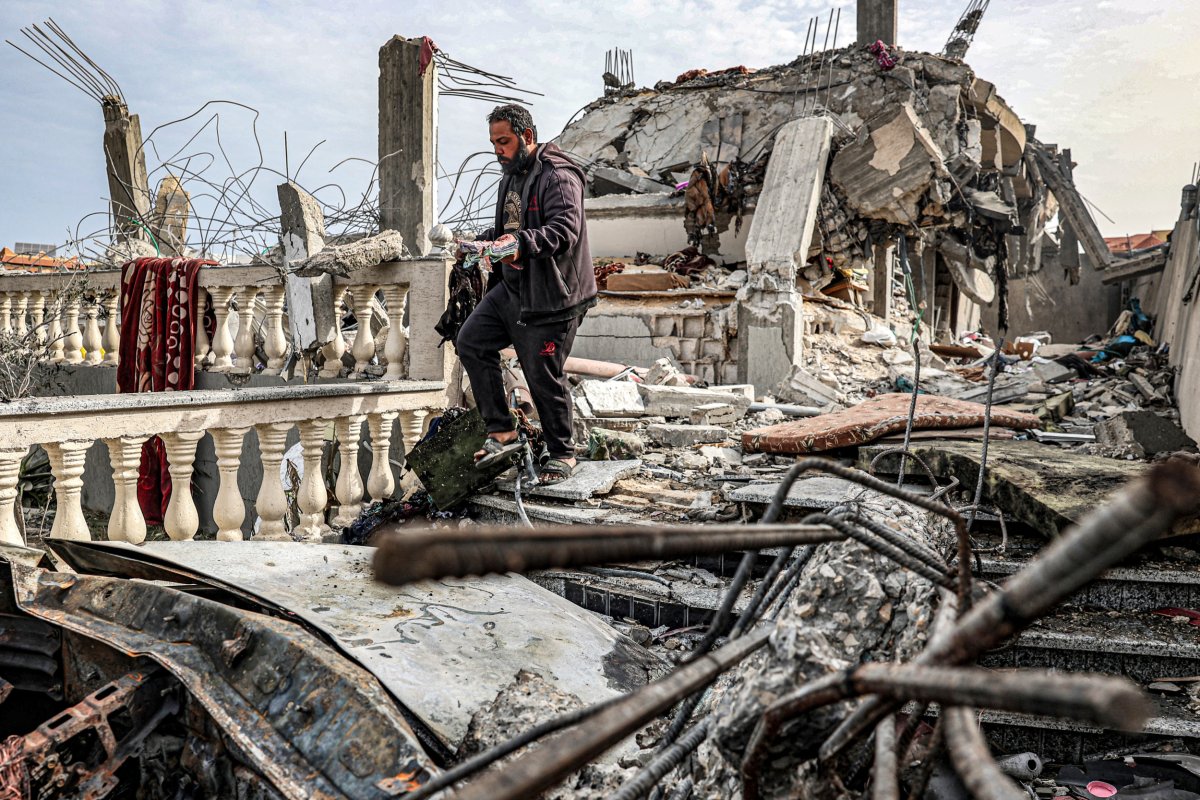For months, U.S. officials have been warning against an Israeli attack on Rafah, which sits along Gaza's border with Egypt and has become the "last refuge" for more than 1 million Palestinians fleeing Israel's offensive against the devastated territory.
Washington wants Israel to conduct a more limited, targeted operation to root out the Hamas and other militant leaders and formations believed to be in Rafah, including their occupation of a network of tunnels underneath it. But Israeli Prime Minister Benjamin Netanyahu and his war cabinet have repeatedly made clear they see a full assault as their only choice.
"We think that the plan that Israel has said it intends to pursue with respect to Rafah is one that would be a mistake," State Department spokesperson Matthew Miller told journalists at a Wednesday briefing. The proposed operation "would have enormous—a terrible impact on the civilian population there and would weaken Israel's security, and we think there's a better way," he said.
Rafah's prewar population of around 250,000 has been swollen by waves of refugees fleeing Israeli attacks in the north and center of the Gaza Strip. Some 1.4 million people are now believed to be in Rafah, overwhelming already scant infrastructure there and raising fears of epidemics and starvation.
Miller said: "What we have said is the kind of mission that we could support is a much more targeted, limited campaign that could still achieve the same objectives, that could still lead to the defeat of those remaining Hamas battalions inside Rafah, but without massive harm to the civilian population, without hindering the delivery of humanitarian assistance, and without actually weakening Israel's security instead of strengthening it."
One American volunteer physician told in February that an Israeli assault on Rafah would prove "catastrophic."
But the Israeli view has been uncompromising. Amir Avivi, the founder and chairman of the Israel Defense and Security Forum and a former Israel Defense Forces senior commander, told last month: "When we go into Rafah, this is going to be in the south the decisive battle that will destroy Hamas as a governmental and military entity.... I don't see any scenario where Israel is not going into Rafah."
Netanyahu has been trying to maintain foreign—and especially U.S.—support amid growing concern over the massive civilian casualties in Gaza and the Israeli security crackdown in the occupied Palestinian West Bank, where hundreds have been killed since Hamas' October 7 attack on Israel.
"Victory is within reach," he told American lawmakers this week. "It's a few weeks away." Israel, he added, has "no choice" but to move into Rafah, given that his country's "very existence is on the line."
But the veteran leader's political capital in the West has been badly depleted by the latest war on Gaza, now almost six months old. More than 32,000 Palestinians have been killed and nearly 75,000 wounded in the conflict, according to Gaza Health Ministry data cited by the Associated Press.
About 1.4 million of Gaza's 2.3 million prewar population have been displaced, the AP said. The Wall Street Journal reported in December that more than 70 percent of all homes in Gaza had been damaged or destroyed.
In the West Bank, meanwhile, at least 435 Palestinians have been killed by Israeli security forces and settlers, according to Associated Press figures. Another 7,770 have been arrested, according to the Commission of Detainees Affairs and the Palestinian Prisoners Society, which are both Palestinian organizations.
Israel launched its offensive after Hamas' October attack on southern Israel, which killed some 1,200 people and saw 257 people taken back into the Strip as hostages. Israel believes 134 remain unaccounted for. At least 251 Israel Defense Forces members have been killed in the Gaza incursion to date.

-------- END --------







